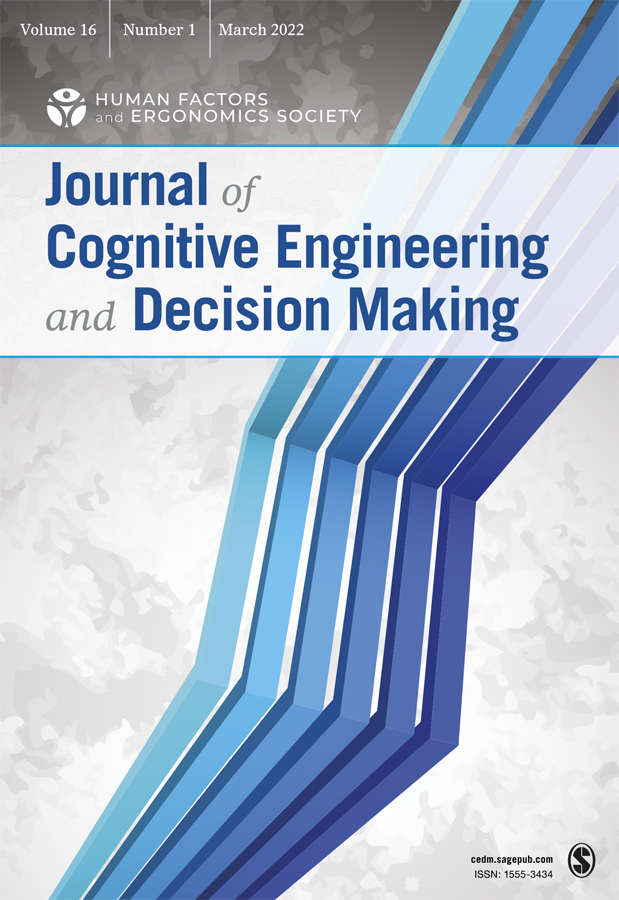School of Technology professor Lucas Fogaça published paper in Journal of Cognitive Engineering and Decision Making
 Lucas Fogaça, Aviation Sciences professor at PUCRS, had a study published in the Journal of Cognitive Engineering and Decision Making, a peer-reviewed U.S. academic journal covering studies on human cognition and application of this to the design and development of system interfaces and automation, in association with Human Factor and Ergonomics Society (HFERS). The study Airline Disruption Management: A Naturalistic Decision-Making Perspective in an Operational Control Centre materializes his Master’s thesis advised by Business School professor, Dr. Éder Henriqson.
Lucas Fogaça, Aviation Sciences professor at PUCRS, had a study published in the Journal of Cognitive Engineering and Decision Making, a peer-reviewed U.S. academic journal covering studies on human cognition and application of this to the design and development of system interfaces and automation, in association with Human Factor and Ergonomics Society (HFERS). The study Airline Disruption Management: A Naturalistic Decision-Making Perspective in an Operational Control Centre materializes his Master’s thesis advised by Business School professor, Dr. Éder Henriqson.
The study unveils some aspects of decision-making in Operations Control Centers (CCOs) responsible for coordinating the entire flight network and events interrupting the flow of flights, such as weather conditions, maintenance, delays and others. The article published by Fogaça and Henriqson had the collaboration of 2 other co-authors: Professor Dr. Guido Carim Jr. from Griffith University (Australia), and Felipe Lando, who is also in the Graduate Program in Business Administration.
According to Fogaça, “it is essential to publish the research we developed in graduate school”: not only these studies add value to researchers’ careers, but they also encourage the work of advisors and the reputation graduate programs, thus giving visibility to all parties involved and, in this case, a contribution to research in the civil aviation industry. “It is a demonstration of our ability not only to transmit information and generate knowledge, but also to do research, develop and form opinions and new concepts”, he celebrates.
In an environment where several variables can affect flights, airlines need to operate to make constant adjustments to keep operations going. According to Fogaça, most of the studies developed worldwide so far focus on decisions centered on the Flight Coordinator, but the research he developed suggests new approaches.
The research shows that distributed and decentralized decision-making, with the collaboration of several other experts from different areas, contributes to better decisions by the Flight Coordinator. Another point is that experts in each field are constantly and actively looking for signs of disruption while monitoring normal operation and rebalancing resources, thus making contributions to decision-making to the system. Furthermore, according to the study, specialists in the field have a variety of strategies that allow them to implement and develop innovative solutions in dynamic scenarios. According to them, the system’s resilience in the face of interruptions emerges from the combination of these repertoires of the different decision-makers of the OCC.
The way he sees it, international publications like this one, especially in recognized journals, are a testament to the quality of the work produced. “This type of initiative increases our reputation as professionals, something that is also reflected in the seriousness of the program and the institution”, he adds.